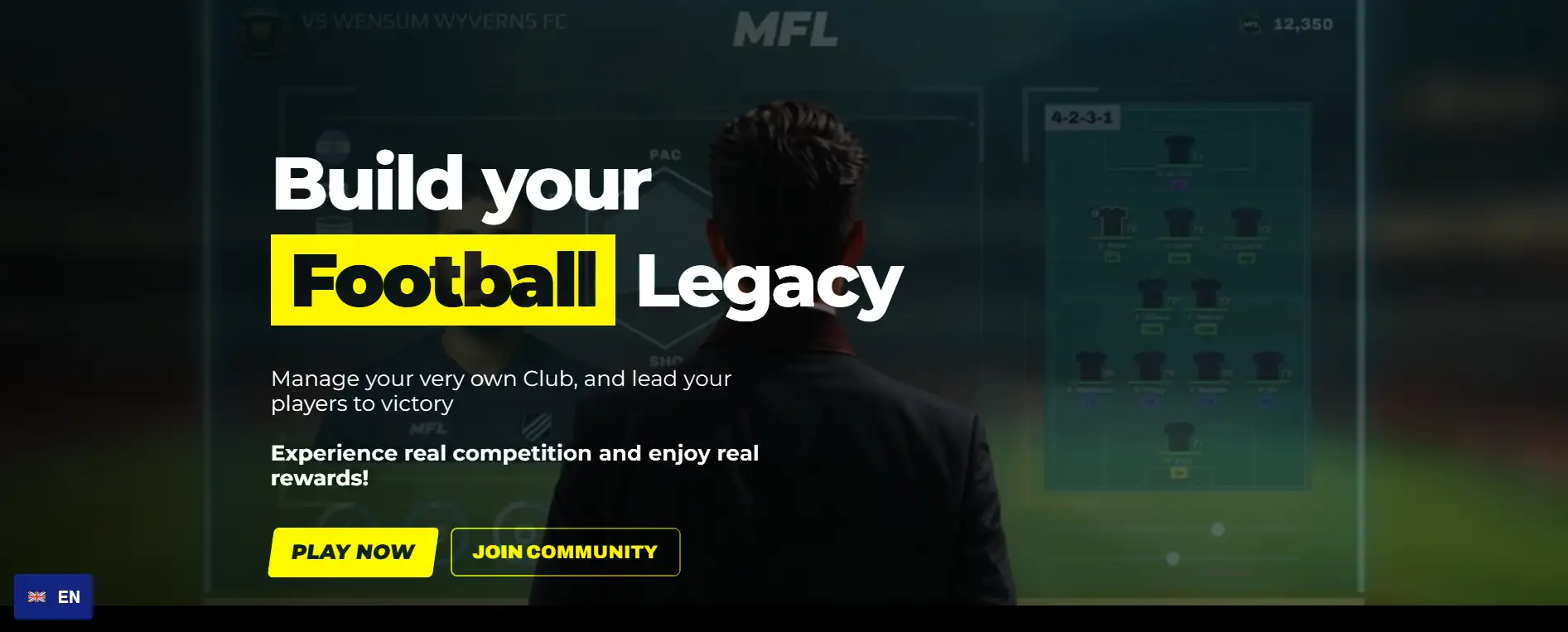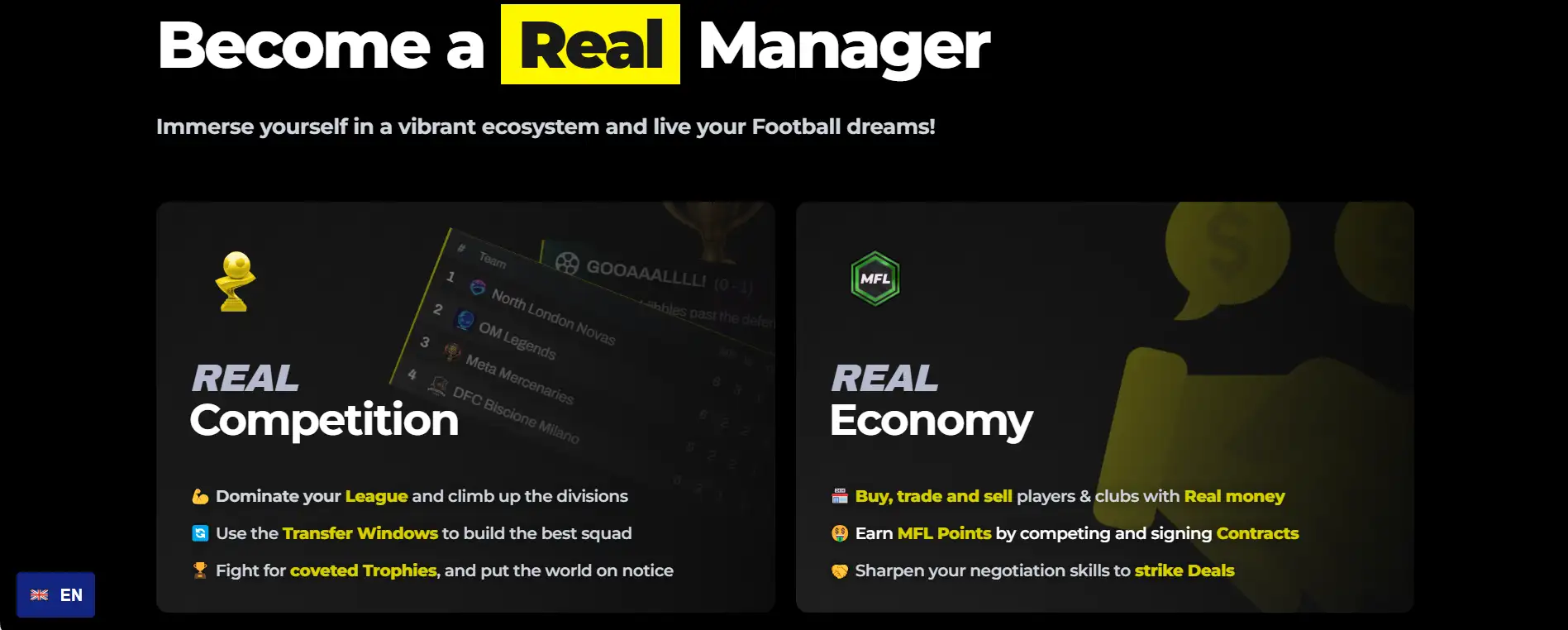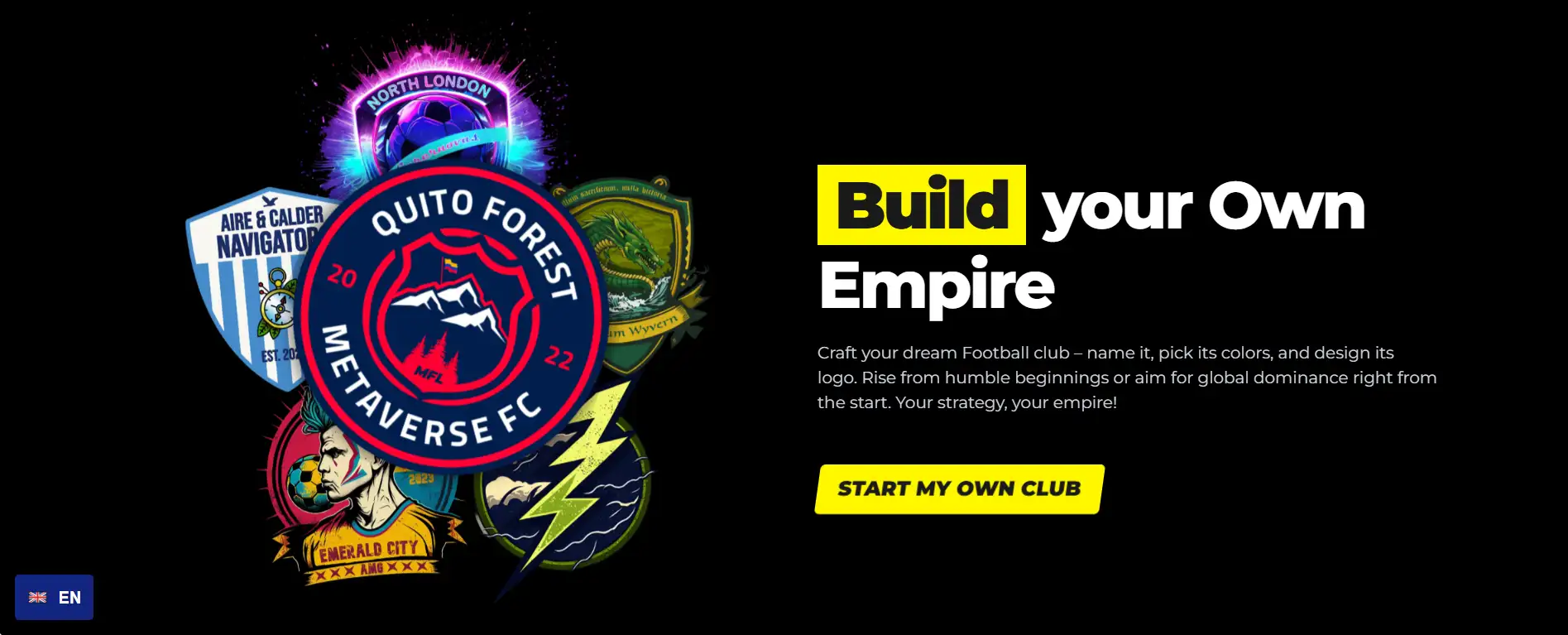About MFL
MFL is a Web3 football management game that allows users to live out their dreams of building and managing a professional football club. Known as the Metaverse Football League, MFL immerses players into a competitive and decentralized football universe where every decision counts—from assembling a squad to leading it through intense league battles and high-stakes tournaments. Players take on roles as both club managers and agents, experiencing the highs and lows of real football dynamics.
The game emphasizes strategic thinking, community engagement, and ownership of in-game assets, all backed by blockchain technology. Every club, player, and transaction is represented as a unique NFT, offering players genuine ownership and tradability. With a real economy model powered by the in-game currency $MFL, users can buy, sell, and earn within the ecosystem. MFL isn’t just about playing—it’s about competing, managing, and making history in the footballing metaverse.
MFL, short for Metaverse Football League, is an innovative sports simulation dApp that merges the excitement of football management with the power of blockchain technology. Designed for both football fans and Web3 enthusiasts, MFL is built on a fully decentralized structure where users have control over every aspect of their experience. Players can start by building their own clubs, selecting team colors, designing logos, and entering competitive leagues filled with other human managers. Every player and club in MFL is a unique NFT asset, which adds layers of ownership and strategy not found in traditional games.
At the heart of MFL is its immersive league system. The structure is based on a seven-division pyramid managed by the in-universe governing body, the IMFF. At the pinnacle sits the Diamond League, an elite competition hosting top-tier clubs. As players rise through the ranks, they engage in thrilling matches, execute smart transfer strategies during key windows, and battle in high-stakes tournaments. Seasons last six weeks, offering fast-paced progress and ongoing excitement. Every decision counts—scouting, training, transfers, and tactical decisions all play a pivotal role in a club’s journey.
What separates MFL from traditional football managers like Football Manager or EA Sports FC (formerly FIFA Career Mode) is the integration of blockchain-based ownership. Players are tradeable NFTs with unique attributes and career arcs, and clubs are assets you can own or sell on both the MFL and external Flow marketplaces. Users can play as club managers, player agents, or both, allowing for flexible gameplay and strategic diversity.
MFL is not just about strategy; it's about community. Managers can join live competitions, negotiate deals, mentor players, and more. Clubs can be customized from the ground up, including names, stadiums, kits, and geographic locations. The inclusion of aging and retirement for players introduces realism and depth, while the career progression system ensures no two players evolve the same way. This forward-looking project aims to bridge the gap between gaming and blockchain while ensuring that the focus always remains on fun, strategy, and the beautiful game. MFL is building a legacy—one match at a time.
MFL offers dynamic and engaging gameplay mechanics that replicate the intensity and complexity of real-world football management. Users can take on roles as Club Owners, Agents, or both, allowing for multiple ways to participate in the game.
- Build and Manage Your Own Club: Start with a Club License to establish your team’s identity—name, colors, logo, stadium, and more. Club owners can enter multiple teams into different competitions and manage everything from scouting to tactics.
- Real-Time Match Simulation: Matches are simulated live or can be watched later thanks to the anti-spoiler feature. The matches use a 2D match engine and last between 10-15 minutes, balancing entertainment with convenience.
- League Pyramid System: The competitive structure features 7 divisions culminating in the prestigious Diamond League. Promotions and relegations occur after each 6-week season.
- Transfer Windows & Negotiations: Player transfers are handled through in-game windows, during which Club Owners and Agents negotiate deals. Real strategy and timing are essential to secure top talent.
- Player Attributes and Growth: Each player has a unique set of attributes (PACE, SHOOTING, PASSING, etc.) that determine their performance. Players can train, age, and retire, adding long-term planning to gameplay.
- Packs and Rarity: Players are obtained via packs of various rarities—from Common to Legendary. Packs are sold in limited quantities and priced in $MFL currency.
- In-Game Economy: Earn $MFL by competing, signing contracts, or selling NFTs. Use it to purchase packs or enter competitions. The value is pegged to in-game items (800 $MFL = $1 USD).
MFL provides a streamlined path for users eager to join the Web3 football revolution. Whether you're starting from scratch or are a veteran in sports strategy games, onboarding is smooth and accessible.
- Step 1 – Visit the Website: Head over to playmfl.com and click on "PLAY NOW" to begin your journey.
- Step 2 – Sign Up: Create an account using a valid email address. A Flow wallet may be required for managing NFTs and in-game assets. Follow the prompts to link or create one if needed.
- Step 3 – Get Your Starter Packs: New users can purchase a Club Pack (1x Club) or Starter Pack (2x Players). These assets will serve as the foundation of your MFL journey.
- Step 4 – Customize Your Club: Use the built-in editor to set your club's name, logo, colors, stadium, and more. Personalization is key in MFL’s ecosystem.
- Step 5 – Enter Competitions: Place your team in one of the seven competitive divisions and start climbing the ranks. You can view live and upcoming competitions through the in-game dashboard.
- Step 6 – Scout & Negotiate: Use the advanced scouting tools to find high-potential players. Negotiate deals and sign contracts to strengthen your squad.
- Step 7 – Monitor Performance: Track player development, manage tactics, and watch live or replayed matches to analyze performance and make tactical adjustments.
- Step 8 – Earn & Trade: Compete to earn $MFL, trade players on the Marketplace, and enhance your club’s reputation.
MFL FAQ
Relocating your club in MFL is currently listed as an “Under Consideration” feature. While users can freely update their club’s logo, name, and colors, changing the city or stadium location depends on future updates. Each club license comes with a fixed geographic location. The developers plan to cap the number of clubs in each city, which may add scarcity and value to specific locations.
Players in MFL age one year every season, and their retirement age is secretly defined by a hidden Longevity (LON) score. Once players approach retirement, their performance and stamina decline, requiring smart rotation and planning from managers. Most players retire between the ages of 34–36, with some going earlier or later. Retired players currently leave the game, but future roles like scout or coach are being considered.
In MFL, scouting helps identify high-potential players, but if you delay, you risk losing them to competitors. Players are active assets and their contracts can change or expire. You’ll need to act quickly during Transfer Windows to strike deals. It’s also possible that a player may improve or decline while you wait, making timing and negotiation a crucial part of your scouting strategy.
Hidden attributes like Potential (POT) and Longevity (LON) bring unpredictability to MFL. These ratings are assigned at creation and cannot be seen or changed. POT affects how fast and how far a player can grow, while LON defines career length. To adapt, managers must observe in-game performance over time, use scouting data, and make educated decisions based on each player's evolution and stamina patterns.
MFL allows users to operate as either a Club Owner or a Player Agent. Club Owners manage full squads, oversee tactics, and compete in leagues. Agents, on the other hand, specialize in guiding player careers—negotiating contracts, securing deals, and maximizing talent. Agents don’t need to run clubs but can still earn MFL Points. Each role supports the ecosystem and allows users to tailor their experience and goals.
You Might Also Like












